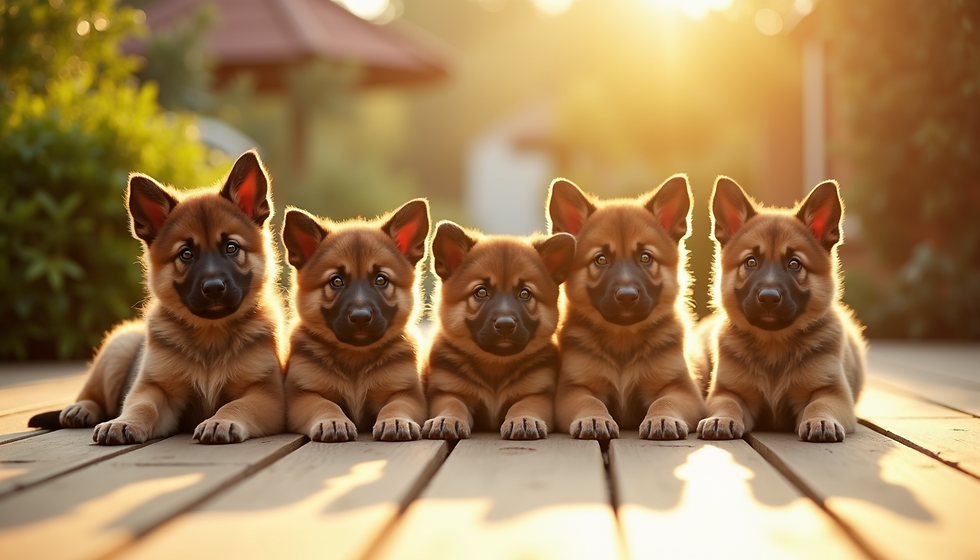Our Puppy Litters
OUR PUPPY CULTURE

1
I incorporate Early Neurological Stimulation (ENS) into my puppy-raising practices, beginning on day 3 and continuing through day 16 of the puppies’ lives. This short but crucial window is considered a period of rapid neurological development, and although the pups are still quite immature, they are surprisingly responsive to these exercises.
The concept of ENS was originally developed by the U.S. military to enhance the future performance of working dogs. It’s a method that’s been refined and promoted through the Breeding Better Dogs program by Dr. Carmen Battaglia, a respected AKC board member, breeder, and educator.
Each day, I work with each puppy individually, guiding them through a specific sequence of five short exercises designed to gently stimulate their developing nervous system. I always follow the full sequence with one pup before moving on to the next. These sessions are brief but meaningful, helping lay the foundation for a more resilient, well-adjusted dog.
2
I use Early Scent Introduction (ESI) as part of my puppy development program to help each pup become more aware of the world through their sense of smell. ESI is similar to Early Neurological Stimulation in terms of timing—we begin the process on day 3 and continue through day 16 of the puppy’s life, which is an important stage in their early development.
Each day, I introduce the puppies to a new scent. While holding them gently, I bring the scented item close to their nose and allow them to react naturally. I carefully observe their response and make a note of it on their neonatal care chart. A curious movement toward the scent is recorded as a positive reaction, while turning away is considered negative. If the puppy doesn’t show a strong response either way, it’s noted as neutral.
Why do I do this?
Stimulating a puppy’s scent recognition skills during this early window can help them grow into more confident, attentive dogs. This is especially important for dogs who may go on to become service, therapy, or support animals. Scientific research shows that early scent work can significantly improve a dog’s ability to use their nose effectively later in life.
Here are just a few ways dogs use their sense of smell to help people:
-
Some dogs are trained to follow scent trails to locate children with autism who may have wandered off.
-
Diabetic alert dogs detect fluctuations in blood sugar through scent.
-
There are even dogs who can alert their owners to hazards like gas leaks or a stove left on.
While some dogs are naturally more scent-driven than others, practicing ESI and tracking responses helps me better understand each puppy’s instincts. This makes it easier to match them with the right families or individuals based on their natural abilities and temperament.
If you're interested in learning more about ESI, I recommend visiting Avidog’s website for a detailed overview and a helpful video.
3
We’re dedicated to helping each family find a puppy whose personality aligns with their lifestyle and needs. To support this, we use a structured puppy development program inspired by Jeanette Forrey’s Badass Breeders curriculum from 4E Kennels. This hands-on approach guides our puppies through a variety of experiences over several weeks, including exposure to new sights, sounds, textures, environments, and handling techniques.
Each puppy undergoes a temperament evaluation using the BAB method, and we document these sessions.
Our mission is to raise confident, adaptable puppies and help families build strong, informed relationships with their dogs. We aim to guide new owners through every stage of development—from puppyhood to adolescence and adulthood—while setting clear and realistic expectations.
We place a strong emphasis on education and are fully committed to providing lifelong support to all members of our BFS Pack community.


